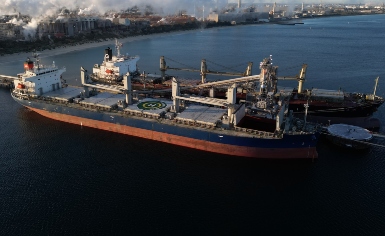
The number of claims for stern tube damage has increased considerably over the last few years and such damages are now one of the more frequent claim types handled by Gard under their hull and machinery policies. A recent Gard analysis has shed light on the issue.
The nature and severity of stern tube damage damage varies greatly – ranging from a simple aft seal leakage that can be rectified over a few days whilst afloat, to loss of propulsion involving costly salvage operations and extended repairs in drydock. Continue reading “Stern tube damage is on the increase in concerning trend”



 This overview of cargo claims has been provided by The Swedish Club
This overview of cargo claims has been provided by The Swedish Club
 Mark Russell, Vice President, Head of Cargo Claims,
Mark Russell, Vice President, Head of Cargo Claims,  The London P&I Club has continued to see cargo damage claims arising from the carriage of dry chemicals in Flexible Intermediate Bulk Containers (FIBCs), more commonly known as “jumbo bags”, which have been stowed in the same holds as breakbulk cargoes. FIBCs have a body of a flexible woven material (typically polypropylene) and is intended for shipping solid materials in powder, flake or granular form.
The London P&I Club has continued to see cargo damage claims arising from the carriage of dry chemicals in Flexible Intermediate Bulk Containers (FIBCs), more commonly known as “jumbo bags”, which have been stowed in the same holds as breakbulk cargoes. FIBCs have a body of a flexible woven material (typically polypropylene) and is intended for shipping solid materials in powder, flake or granular form. A new video has been released by
A new video has been released by 

 The Loss Prevention team at the UK P&I Club has produced its latest ‘Inside Ship’ animated training video, focused on correctly securing fasteners to prevent equipment failures during an overhaul.
The Loss Prevention team at the UK P&I Club has produced its latest ‘Inside Ship’ animated training video, focused on correctly securing fasteners to prevent equipment failures during an overhaul.